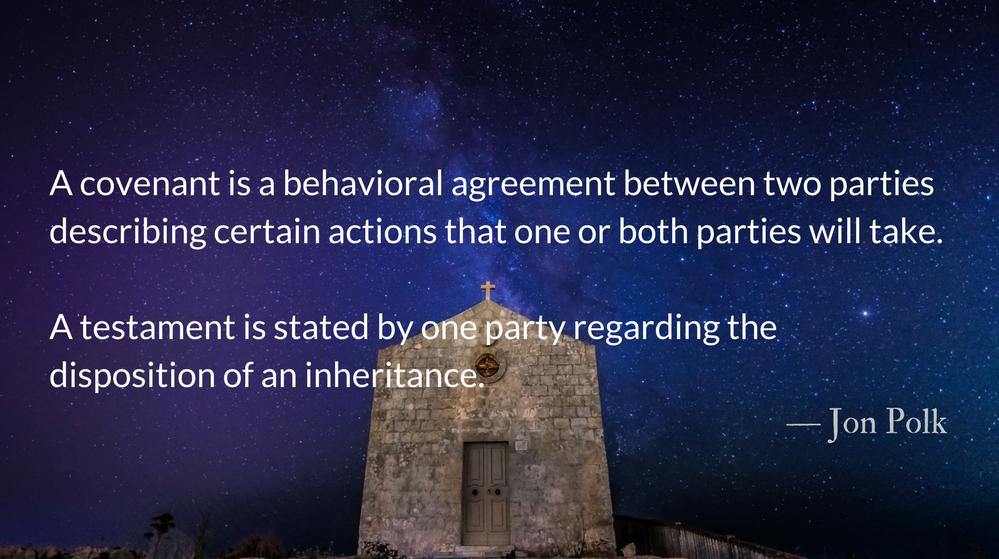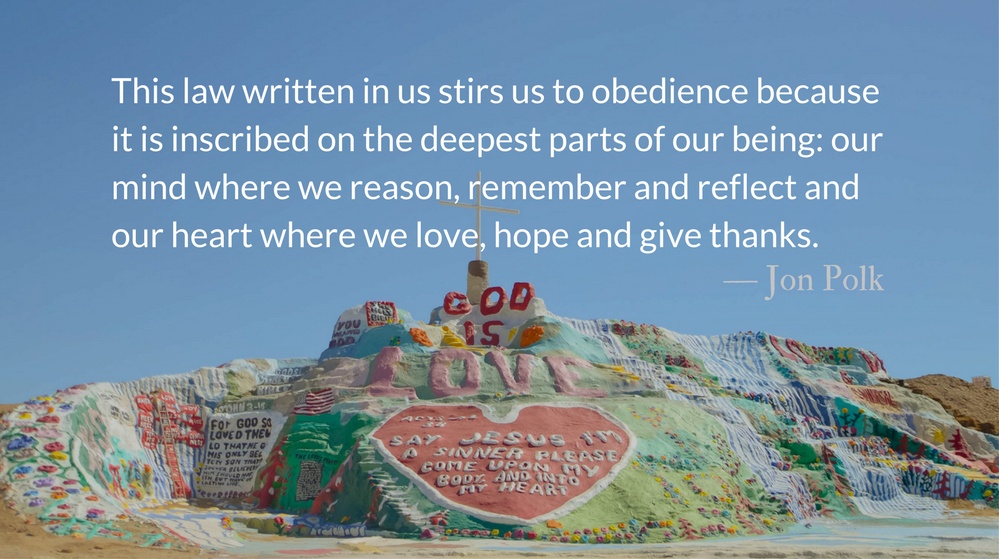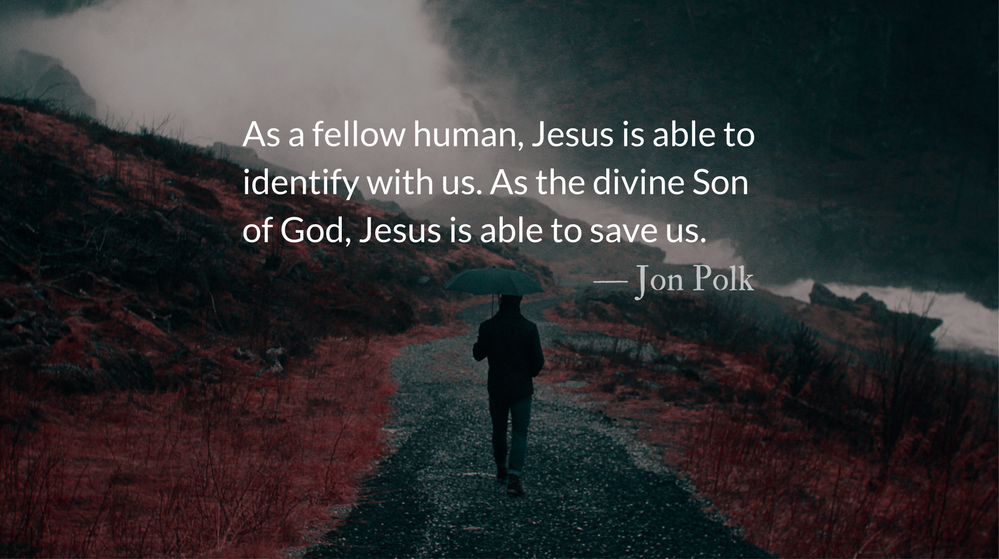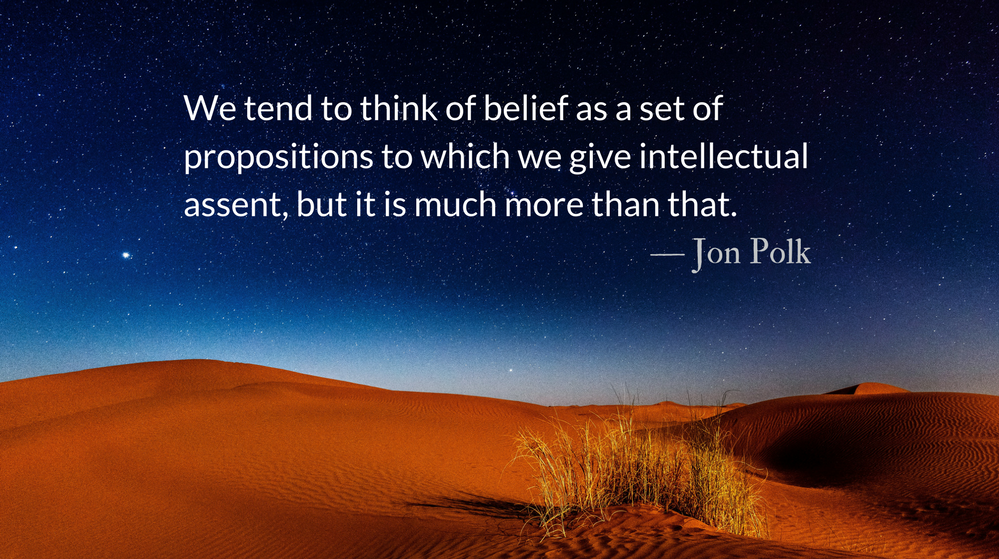Scripture: Hebrews 9.15
For this reason Christ is the mediator of a new covenant, that those who are called may receive the promised eternal inheritance—now that he has died as a ransom to set them free from the sins committed under the first covenant.
Reflection: Divine Will and Testament
By Jon Polk
Our High Priest Jesus has mediated for us a New Covenant with God, the terms of which read more like wedding vows than legal terms. In a similar way, the gospel message, the announcement of the good news found in Christ, sounds a lot like a last will and testament.
A covenant is a behavioral agreement between two parties describing certain actions that one or both parties will take toward the other. A testament, however, is stated by one party regarding the disposition of personal property, i.e. an inheritance. The conditions of a last will and testament only take effect upon the person’s death.
The Old Covenant required sacrifices and had regulations for worship and an earthly tabernacle. But the sacrifices and gifts offered by the people of Israel were merely matters of eating, drinking and ceremonial cleansing and were ultimately unable to cleanse the conscience of the people.
As our High Priest, Jesus entered a heavenly tabernacle and offered himself as an unblemished and perfect sacrifice for our sins.
Upon his death, the conditions of Jesus’ last will and testament come into effect. When a person dies, he or she must trust the legal system to insure their will is executed as they intended. For Jesus, however, he has returned to life to personally guarantee that we receive the entirety of his inheritance.
The Last Will and Testament of Jesus Christ
I, Jesus Christ, of the city of Nazareth, declare this to be my Will, and I revoke any and all wills and covenants previously made.
I hereby give my grace, love, mercy and forgiveness to all of humanity, past, present, and future. I leave behind for my heirs the promise of eternal redemption. I give them clean consciences for the purpose of serving the living God.
Upon their acceptance of these gifts, freely given, they will also receive a portion of my eternal estate and a place reserved for them in my home in heaven. This inheritance is priceless and is pure, undefiled, and will never decay or fade away.
I declare that this Will for my brothers and sisters has been proclaimed by our Father to be “good and acceptable and perfect.”
The Prayer Appointed for the Week
O God, whose blessed Son came into the world that he might destroy the works of the devil and make us children of God and heirs of eternal life: Grant that, having this hope, I may purify myself as he is pure…
– From The Divine Hours: Prayers for Autumn and Wintertime by Phyllis Tickle.
Full prayer available online and in print.
Today’s Readings
1 Chronicles 3-4 (Listen – 8:52)
Hebrews 9 (Listen – 4:40)











